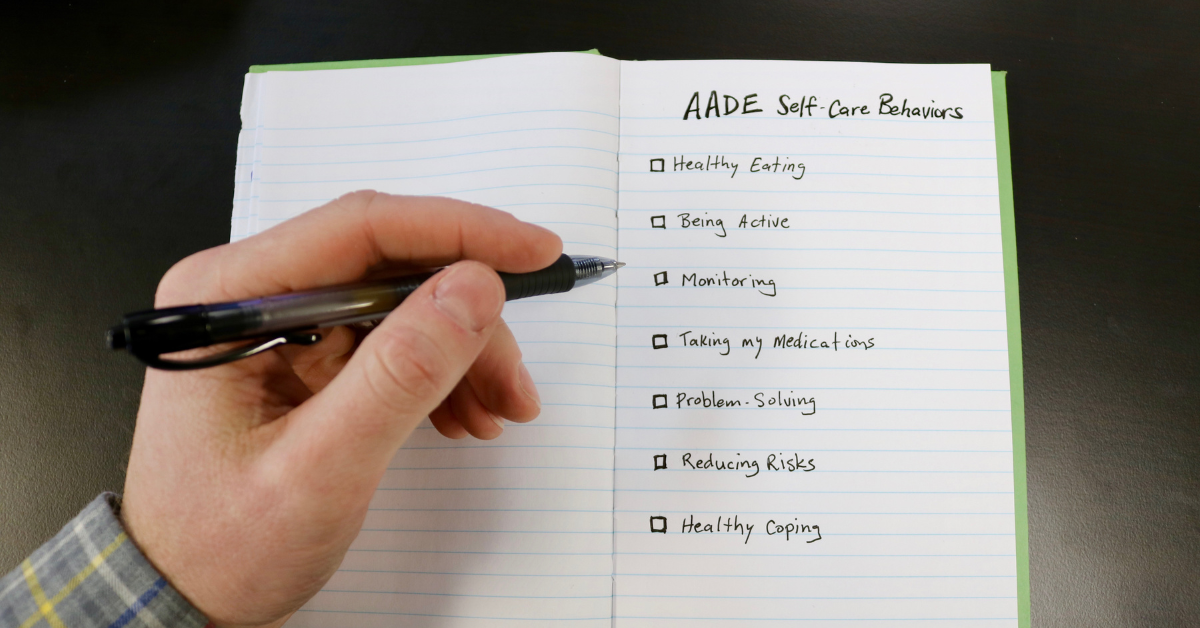
Research has demonstrated that to achieve the best outcomes for people living with type 2 diabetes (T2D), you must actively participate in your own care. The American Association of Diabetes Educators (AADE) has defined 7 areas of focus for these self-care behaviors including healthy eating, being active, monitoring, taking medication, problem-solving, reducing risks, and healthy coping.
Here's why...
Just having diabetes can lead to some major health complications. Risks for heart disease, blindness, retinopathy, neuropathy, kidney disease, amputation, dental issues, and diabetes-related distress and depression all come with the territory. Although it sounds scary when laid out so plainly, these complications are not inevitable.
Individuals with diabetes have been shown to make a dramatic impact on the progression and development of their T2D by participating in their own care, thus reducing or averting any long-term complications. The greatest declines were for two leading causes of death: heart attack and stroke.
Here's where the AADE's advice can help. Let's look at the seven areas to focus on in your own self-care:
A. Have your A1C checked to measure your average blood glucose over 2 to 3 months.
B. Try to keep your blood pressure normal (ideal is 120/80). Controlling your blood pressure reduces the risk of heart disease by as much as 50% and the risk of kidney, eye, and nerve disease by about 33%.
C. Control your cholesterol levels.
Finding motivation for lifestyle changes while living with T2D can result in improved feelings of quality of life and reduce or avoid diabetes complications. Self-initiated behavior changes can promote better diabetes care and less diabetes-related distress. By accepting a new lifestyle attitude and actively participating in your own care, you can feel more motivated and empowered to manage your diabetes self-care.